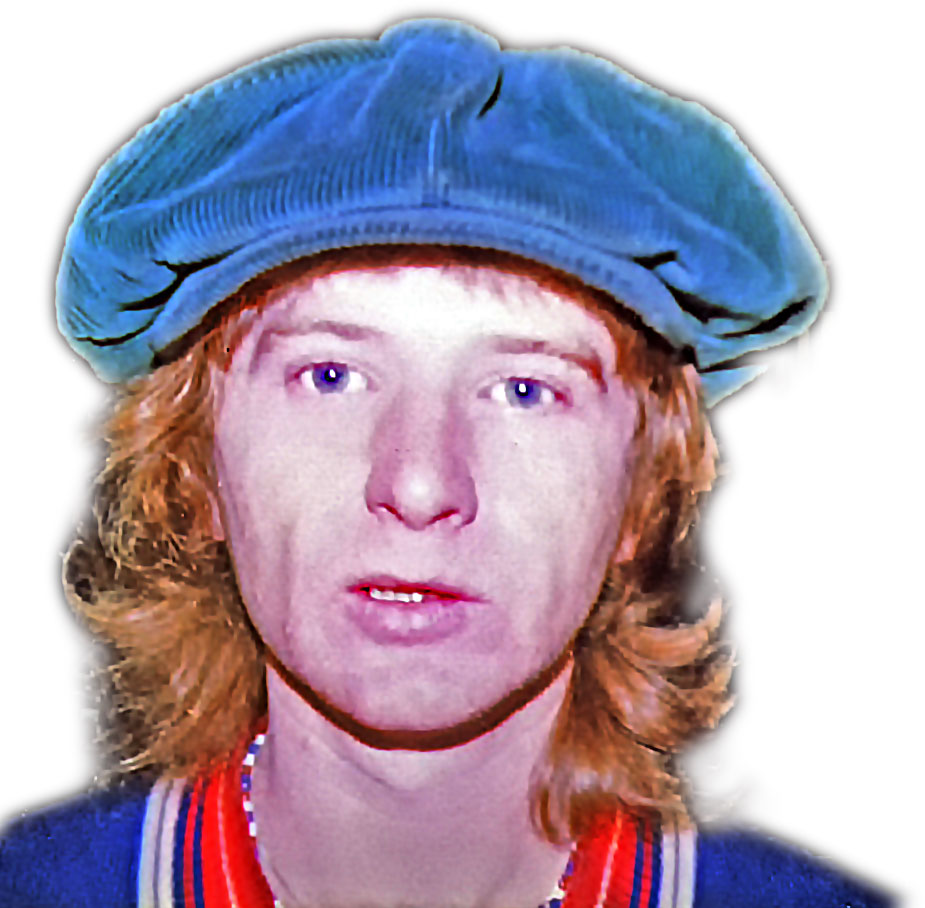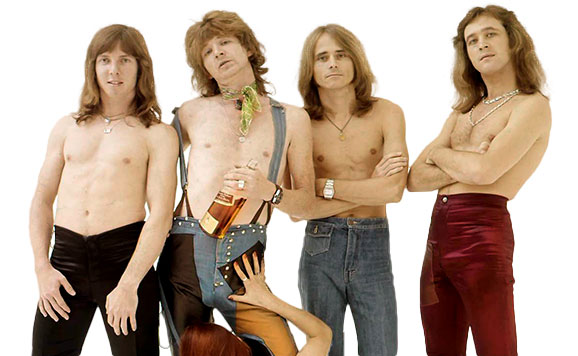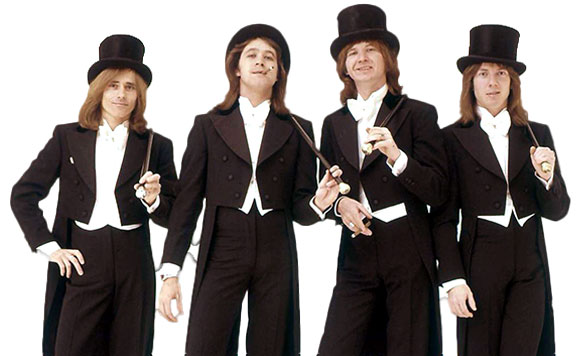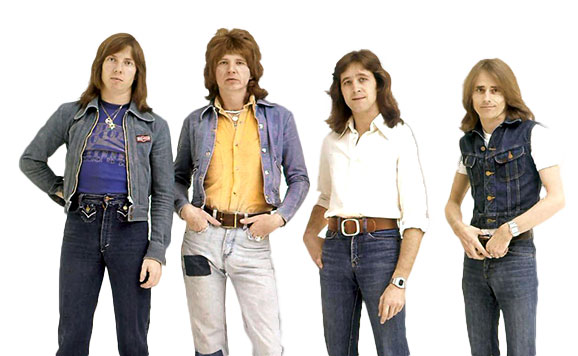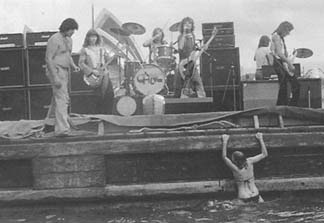 TED MULRY GANG (T.M.G.)
TED MULRY GANG (T.M.G.)
It wasn’t an easy climb - but the band always had that one vision in mind to keep them going, picking up the pieces when things started to crumble or following the sign posts along that long winding road. If there’s one axiom they had, it was: get to the top but have a good time whilst doing so.
The Ted Mulry Gang was formed during August 1972, as a four piece band with Ted on rhythm guitar, and performed their first show at the Mattara Festival in Newcastle New South Wales, Australia on September 2nd. 1972.
Things didn’t explode the way fairy tales would have you believe.
First of all they had to battle the expectations of those who preferred the early style of Ted Mulry, the crooner of love ballads, as the new sound was a mixture of Status Quo style boogie, Deep Purple/Free hard edge guitar raunch and Beatles style melody, but they were slowly and surely won over. The band worked extensively in clubs, pubs and the suburban dance circuit across Sydney and throughout New South Wales and South East Queensland which earned them a strong cult following.
Following the departure of the bass guitarist in mid 1973, Ted stepped into that role and the band continued as a three piece unit. In early 1974 they began recording their first Album ‘Here We Are’ which whipped up a storm of indifference due to the record company still treating it as though it was another solo Album by Ted. Six weeks prior to the release of the Album the band had once again reverted to a four piece, with the addition of Gary Dixon on second guitar to help thicken out the sound, and continued the hard work around the Sydney circuit sometimes doing as many as three different venues on the same day and up to 10 shows a week.
In February 1975 a single ‘Sunday Evenings’ was lifted from the LP which sold very poorly and only just made it onto the National Chart. In Newcastle, at Radio Station 2NX, DJ Barry Chapman had been playing a track from the LP which proved to be very popular with the listeners. Barry encouraged the band to think about releasing the song as a single which he guaranteed would be a hit.
It was one thing to encourage the band but another to convince the Record Company. After some wrangling the second single ‘Jump In My Car’ was released in June 1975 and almost instantly went to the top of the charts in Newcastle. However it was another two months before it received airplay in Sydney and another two months after that before it received airplay in Melbourne and during this time the Album had been removed from the EMI catalogue due to poor sales.
By Christmas 1975 the single was at number 2 in Sydney and number 1 on most other charts around Australia and the band had been catapulted into the big league of Australian Artists.
Once they had their feet in, TMG moved on, punching furiously.
The next single ‘Dark Town Strutters Ball’ went almost to the top and by March 1976, TMG had joined a small elite by having two singles in the top ten at the same time. The hits continued, with ‘Crazy’ and by the end of 1976 TMG had five singles and three Albums, the re-released ‘Here We Are’, ‘Struttin’’ and ‘Steppin’ Out’ which had charted in the same calendar year and completed three intensive National tours.
1977 was much the same with two more top ten singles, ‘Jamaica Rum’ and ‘My Little Girl’ and a charting Album, ‘The TMG Album’, along with another gruelling National tour which lasted almost the entire year.
1978 started with a six week tour of New Zealand followed by the most expansive tour of Australia which is still, to this day, the only tour to circumnavigate the continent and which entrenched them as the hardest working band in Australia.
The hugely underrated guitar partnership of Les Hall and Gary Dixon had continued on with the dual lead guitar in songs like ‘Heart of Stone’. This style of guitar work was already being used by Les Hall and Malcolm Young during 1971/72 in the original songs written by them in the days of Velvet Underground.
By 1979 the changing face of Australian and World Music saw the hits dry up but the touring continued and in August 1986 the Party to end all Parties had come to an end and the band took a three year hiatus.
Old Habits Die Hard and so in 1990 the band regrouped and throughout the decade
worked a few months of the year and Ted did a lot of things again, solo, however in mid 2000 Ted was diagnosed with cancer and sadly passed away, on September 1st 2001, one day short of his 54th birthday.
